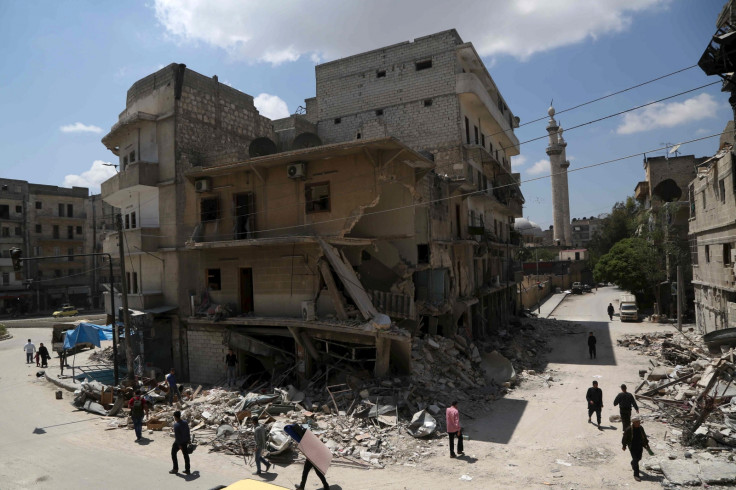Syria: Aleppo residents routinely suffer 'unthinkable atrocities' in war crimes says Amnesty

Atrocities often amounting to war crimes and crimes against humanity have become routine suffering for the residents of Syria's embattled city of Aleppo, an international rights group has said.
Both regime forces loyal to President Bashar al-Assad and rebel groups use indiscriminate explosive weapons, including barrel bombs, almost on daily basis in their fight for control over the divided city causing widespread civilian casualties, Amnesty International said in a new report.
"Civilians in Aleppo are suffering unthinkable atrocities," the report read.
It accuses the government of deliberately targeting hospitals, schools and other public places in opposition-held areas in recent months through its relentless aerial campaign.
"Civilians ... have been bombarded in their homes, hospital, schools, public markets and places of worship," the report read. "The majority of attacks in this campaign have involved the use of 'barrel bombs' – large, improvised explosive devices, which are delivered from helicopters and consist of oil barrels, fuel tanks or gas cylinders that have been packed with explosives, fuel and metal fragments to increase their lethal effects."
Likewise, Amnesty said rebel groups have also engaged in indiscriminate attacks with imprecise explosive weapons such as mortars against regime-held neighbourhoods, adding the practice amounted in some cases to war crimes.
Based on numerous eyewitness interviews, the report contains gripping accounts of the daily violence suffered by civilians.
It quotes Barraj al-Halabi, a member of the Aleppo Media Centre, describing the scene of an air attack in al-Fardous neighbourhood in June 2014.
"Bodies were strewn out on the ground. Six cars were burning, and the people inside them were dead. A little girl came up to me and said, 'my family is inside that building, I need my family'. I told her to be patient and that we would bring them to her. Because of the dust I couldn't see and I thought she had a house. But when the dust came down, there was no house at all. She had no house and no family," al-Halabi said.
The report also denounced the widespread use of torture, arbitrary detention and abduction on both sides of the conflict.
"As a backdrop to these grave violations, residents of Aleppo city live in appalling conditions," it said, explaining that residents in both opposition and government-held areas "lack basic services such as water and electricity, and suffer shortages in food, medicine and gas to heat their homes".
Philip Luther, director of Amnesty International's Middle East and North Africa Programme, said: "More than a year ago the UN passed a resolution calling for an end to human rights abuses, and specifically barrel bomb attacks, promising there would be consequences if the government failed to comply.
"Today, the international community has turned its back on Aleppo's civilians in a cold-hearted display of indifference to an escalating human tragedy."
"Continued inaction is being interpreted by perpetrators of war crimes and crimes against humanity as a sign they can continue to hold the civilians of Aleppo hostage without fear of any retribution," he concluded.
© Copyright IBTimes 2025. All rights reserved.






















